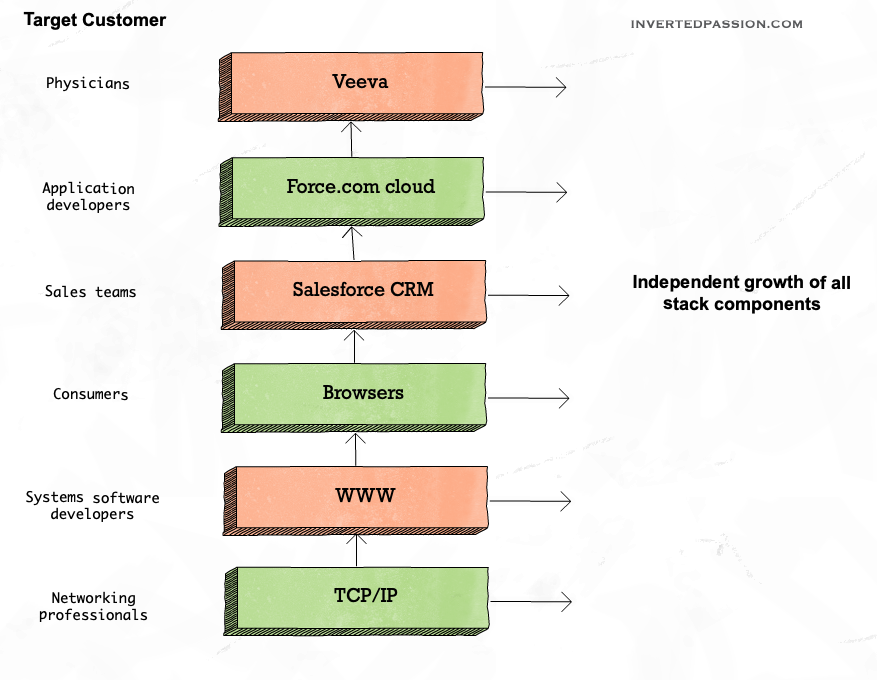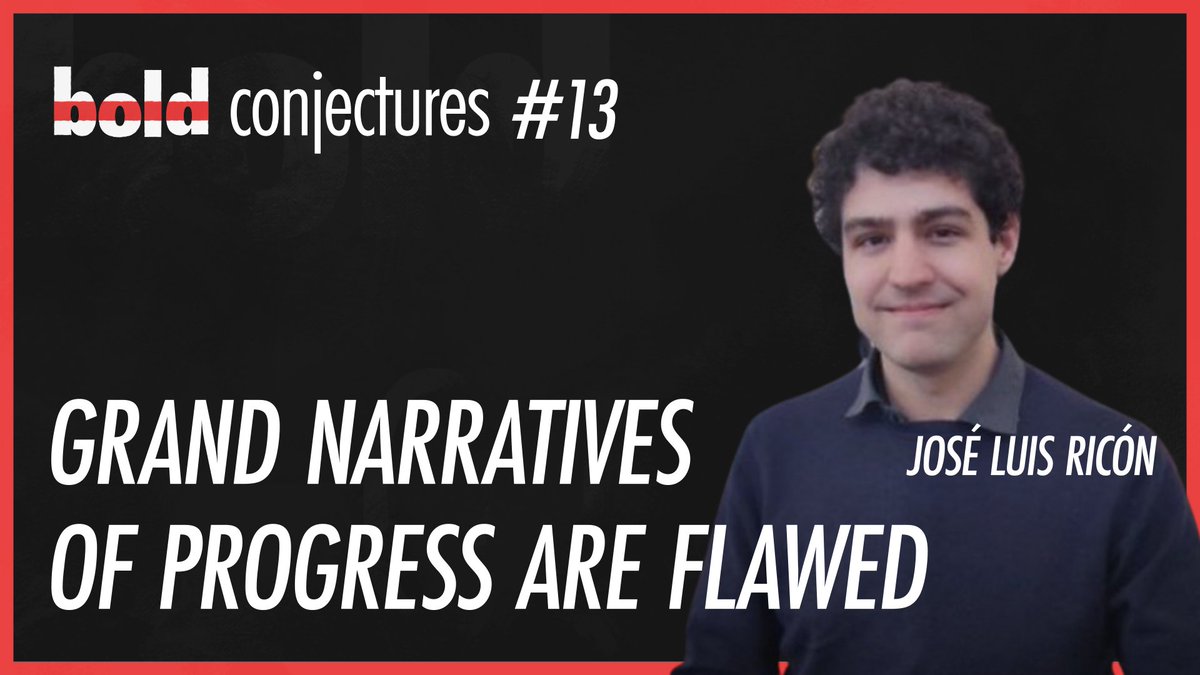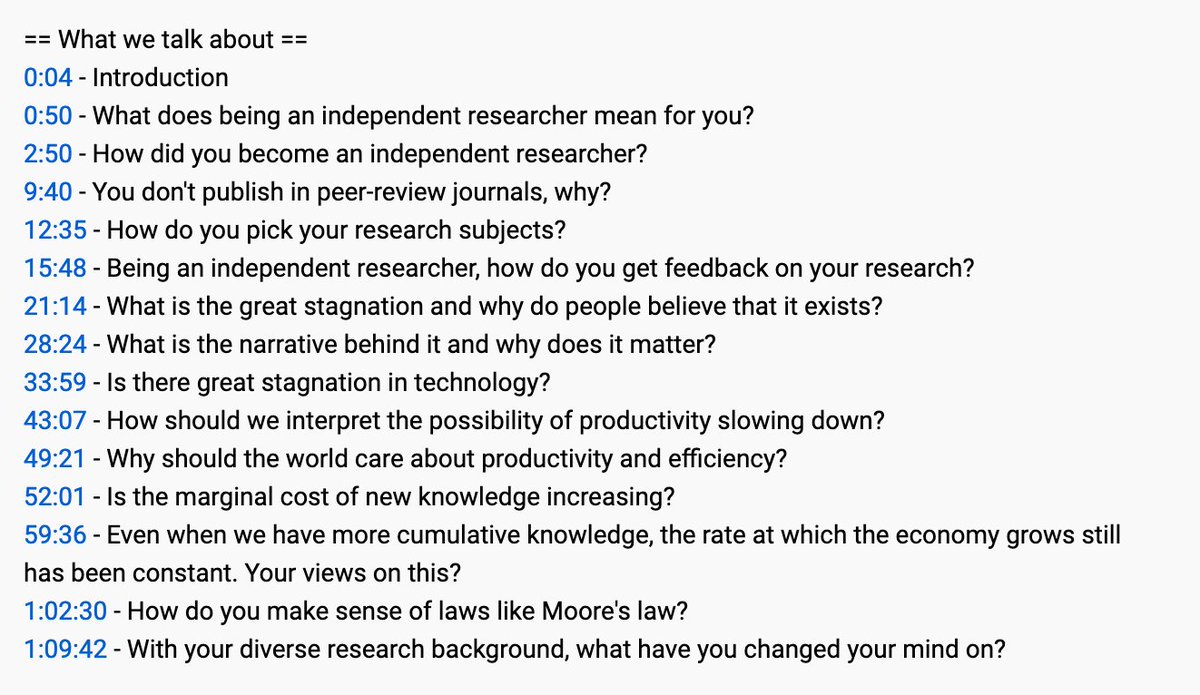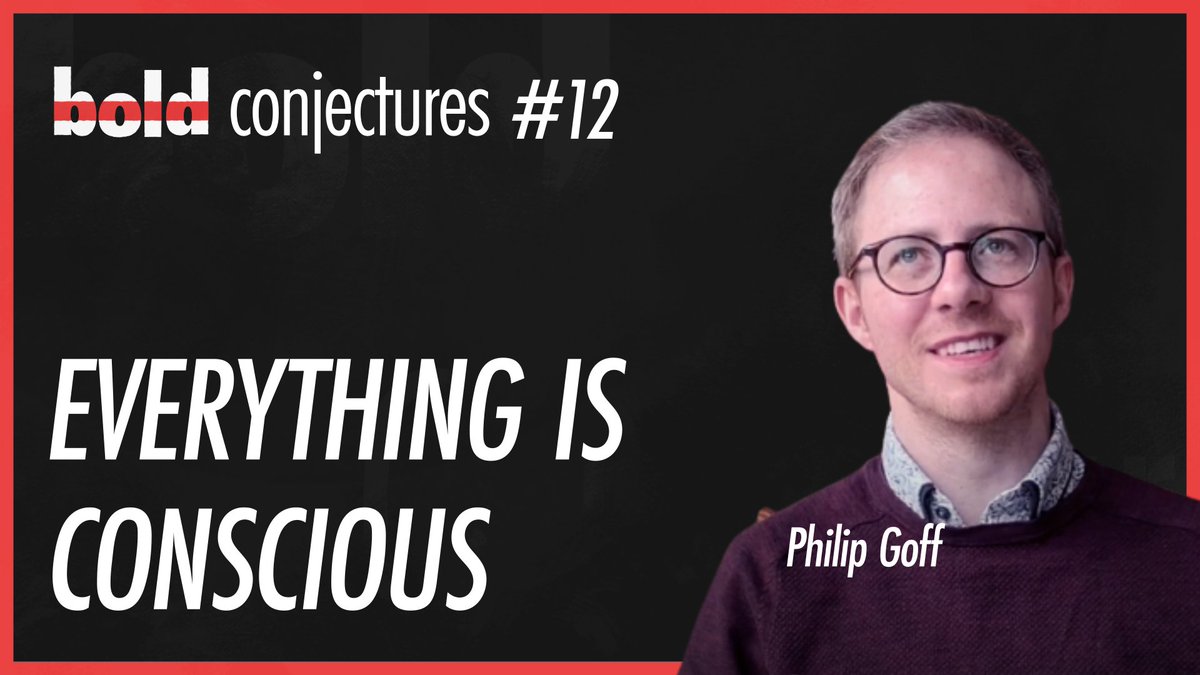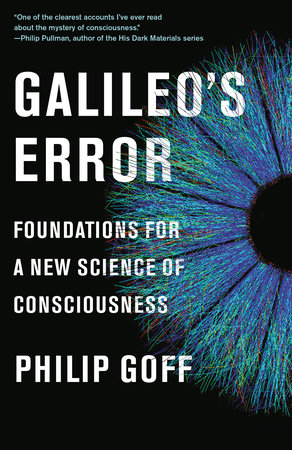
How much can science tell us about reality?
(a really long 🧵 thread)
(a really long 🧵 thread)
1/ Reading and re-reading The Brief History of Time when I was young, I grew up into adolescence with an unshakeable faith in science to reveal truths about reality.
2/ At school, we were taught scientific laws as if they're the gospel of reality, never to be changed and never to be questioned.
Once you understood magnetism, for example, you could seal that part of reality forever as being understood and then move onto the next thing.
Once you understood magnetism, for example, you could seal that part of reality forever as being understood and then move onto the next thing.
3/ Except that's not how things happen.
Our scientific understanding gets revised all the time. Once the western civilization believed that Earth was created 4000 years ago. Today, most know that it can't be true.
Our scientific understanding gets revised all the time. Once the western civilization believed that Earth was created 4000 years ago. Today, most know that it can't be true.
4/ Revision of what we consider to be true is not a bug of science, it's a feature.
5/ But if today's scientific laws will be revised tomorrow, what can we say about reality?
6/ Today we have definitive proof of Black Holes, but what prevents some new theory to come along the way and say: "Oh, by the way, black holes don't exist. Their properties can be explained by space goblins that most definitely exist."
7/ New scientific theories continue to shift the way we understand reality.
So even though I still have an unshakeable faith in the process of science to keep pushing our knowledge frontier, I no longer believe that it'll ever help us understand *everything* that's out there.
So even though I still have an unshakeable faith in the process of science to keep pushing our knowledge frontier, I no longer believe that it'll ever help us understand *everything* that's out there.
8/ To understand why we will never understand everything out there, let's start with why we do science is in the first place.
9/ We do science because we want to overcome reality for our benefit.
There's a reality out there and we're embedded in it. Ultimately, reality impinges upon our senses (vision, touch, hearing, and so on). Some set of senses we prefer (those that help us prosper and reproduce)
There's a reality out there and we're embedded in it. Ultimately, reality impinges upon our senses (vision, touch, hearing, and so on). Some set of senses we prefer (those that help us prosper and reproduce)
10/ and some set of senses we avoid (related to us dying).
11/ In order to act in a way that avoids death and prefers prosperity, we need a predictive model of reality.
For example, if you can't predict that a rock thrown at you will continue to race towards your face, you'll get hurt (and even die from that).
For example, if you can't predict that a rock thrown at you will continue to race towards your face, you'll get hurt (and even die from that).
12/ What is required to make predictions?
To predict, we need to extract invariants from our sense data. Invariants are rules, entities and relationships that don't arbitrarily change. (For example, "a rock thrown at you will hit you" is an invariant that almost always works)
To predict, we need to extract invariants from our sense data. Invariants are rules, entities and relationships that don't arbitrarily change. (For example, "a rock thrown at you will hit you" is an invariant that almost always works)
13/ Evolution has programmed many implicit predictive models in us.
You obviously don't consciously calculate the trajectory of rock but somewhere in your brain exists a predictive model of the rock's trajectory which enables you to dodge it before it hits you.
You obviously don't consciously calculate the trajectory of rock but somewhere in your brain exists a predictive model of the rock's trajectory which enables you to dodge it before it hits you.
14/ Even though many implicit predictive models of reality exist in our brain and body, we can't access them directly.
A child intuitively acts in accordance with newton's laws, but she has to learn the formulas in school.
A child intuitively acts in accordance with newton's laws, but she has to learn the formulas in school.
15/ Originating from the same impulse to overcome nature via successful predictions, science is an attempt to discover explicit models of reality that we're can reason with.
16/ An important and useful idea is that models of reality do not (and perhaps will not) capture reality fully because the most accurate model of reality is reality itself.
17/ For example, a rock's trajectory is impacted by its weight, shape, air friction, curvature of space, force applied, gravitation strength, and so on. <- THIS IS REALITY
But we often just use few variables in our model to make a prediction. <- THIS IS MODEL OF REALITY
But we often just use few variables in our model to make a prediction. <- THIS IS MODEL OF REALITY
18/ Now, here's the unsettling part. 😟
Multiple, sometimes wildly different models, can describe the same reality.
Multiple, sometimes wildly different models, can describe the same reality.
19/ For example, for making the same prediction about where a thrown rock will land, our brains use parallel computation and have feedback loops while newton's laws are deterministic and solvable in one shot.
Yet they both describe the same underlying reality.
Yet they both describe the same underlying reality.
20/ So, if two or more models predict the same reality, who is to say which model is "truer" representation of reality?
In other words, to make the rock move, does reality use mathematical equations like Newton's laws or does it run a neural network?
arxiv.org/abs/2008.01540
In other words, to make the rock move, does reality use mathematical equations like Newton's laws or does it run a neural network?
arxiv.org/abs/2008.01540
21/ If multiple models describe the same reality, we can't say which model is "truer".
This is exactly the view espoused by Stephan Hawking.
This is exactly the view espoused by Stephan Hawking.
22/ In his model-dependent realism stance, "reality should be interpreted based upon these models, and where several models overlap in describing a particular subject, multiple, equally valid, realities exist."
en.wikipedia.org/wiki/Model-dep…
en.wikipedia.org/wiki/Model-dep…
23/ In other words, models of reality differ from each other with respect to their usefulness, and not with respect to their "truthiness".
en.wikipedia.org/wiki/Explanato…
en.wikipedia.org/wiki/Explanato…
24/ The unfortunate consequence of this view is that we can never grasp reality directly.
We only grasp it via our models and if multiple models make equivalent predictions, we have no objective way to say which one describes reality.
We only grasp it via our models and if multiple models make equivalent predictions, we have no objective way to say which one describes reality.
25/ The history of science has progressed generally from simple models to more complex ones.
Newton's laws first, then the general theory of relativity.
The central dogma of molecular biology first, then all the omics.
Newton's laws first, then the general theory of relativity.
The central dogma of molecular biology first, then all the omics.
26/ The reverse (from complex models to simple ones) is less true (although it happens: see the standard model)
27/ The fact that humanity discovered simpler models first indicates something deep.
I think it sheds light on our intense desire to prefer simple, intuitive models of reality (until some new unexplained is shown to be at odds with the simple model).
I think it sheds light on our intense desire to prefer simple, intuitive models of reality (until some new unexplained is shown to be at odds with the simple model).
28/ This pull towards simple, elegant models is nothing but an artifact of evolved brain's tendency to find the most economical way to represent thought.
The unintended consequence of this is a bias for preferring beautiful laws.
The unintended consequence of this is a bias for preferring beautiful laws.
29/ But beauty is not a feature of reality, it's something we're driven to because of our brain's impulses.
Occam's razor is an artifact of our preferences.
en.wikipedia.org/wiki/Occam%27s…
Occam's razor is an artifact of our preferences.
en.wikipedia.org/wiki/Occam%27s…
30/ For all we know, the ultimate reality can be ugly, disjointed, irrational or nonsensical.
The question is: if reality is like that, can we discover or grasp it?
The question is: if reality is like that, can we discover or grasp it?
31/ Let's make two reasonable assumptions:
a) Because human brain prefers simple models, they tend to get discovered first
b) Human brain is limited in conceiving or understanding really complex models
a) Because human brain prefers simple models, they tend to get discovered first
b) Human brain is limited in conceiving or understanding really complex models
32/ If you're on board with a) and b) above, you can make a case that there aren't too many simple models left undiscovered -- we've discovered most of the models of reality that the human brain can come up with and understand.
33/ That is, a revolution in our scientific understanding becomes increasingly unlikely with time.
😞
😞
34/ In fact, on the physics level, many respected physicists such as @seanmcarroll believe that we've already discovered all physics of everyday life. arxiv.org/abs/2101.07884
35/ What's remaining to be discovered is either too small scale (quantum gravity) or too large scale (dark matter and dark energy).
And collecting data and conducting experiments at these extreme unexplained corners of reality is not economical at all. (LHC has a budget of $9bn)
And collecting data and conducting experiments at these extreme unexplained corners of reality is not economical at all. (LHC has a budget of $9bn)
36/ But even though we've discovered all physics of everyday life, I think it's presumptuous to say we've discovered all science of everyday life.
What about progress in fields other than physics?
What about progress in fields other than physics?
37/ Well, when it comes to fields other than physics, phenomena are usually too complex to assert any simple laws.
Biology, neuroscience, economics is often a thousand different facts and rarely a single, beautiful, all-encompassing law.
Biology, neuroscience, economics is often a thousand different facts and rarely a single, beautiful, all-encompassing law.
38/ Evolution by natural selection is a notable exception but people are still debating about the definition of life.
Our cells are complex and so are people and cultures.
Our cells are complex and so are people and cultures.
39/ In a way, the success of science is its own enemy.
40/ There's a race to describe reality and simple models of reality are quickly discovered (and hailed as glimpses into reality) and then we hit a dead-end because human brain can't conceive really complex models (which are what may be required because that's how reality may be)
41/ Once scientists hit a dead-end in a field, factors such as plausibility and beauty drive the search for new theories of reality.
42/ But beauty is not what matters in science.
What matters is whether a new theory is able to predict existing phenomena with better accuracy than the old ones or whether a new theory can predict some new, unexplained data.
What matters is whether a new theory is able to predict existing phenomena with better accuracy than the old ones or whether a new theory can predict some new, unexplained data.
43/ Paradoxically, this criterion that models of reality that make better predictions are to be preferred over others leads to an existential crisis for science itself.
44/ Increasingly, data from complex phenomena will be fed into machine learning models to predict outcomes.
These models are often impossible to understand because they're just a bunch of numbers.
These models are often impossible to understand because they're just a bunch of numbers.
45/ So, do we say we have a new theory when a hard-to-understand ML model makes better predictions than our current theories?
46/ This dilemma is reiterating that there is no "true" model of reality.
All models of reality are true at different predictive accuracies and different capacities for human understanding.
All models of reality are true at different predictive accuracies and different capacities for human understanding.
47/ You can either prefer simple to understand, less accurate model or a complex but more accurate model. (Of course, throw away your complex and inaccurate models).
48/ This is a point made by @tegmark who in his AI Feynman paper, shows that even for human discovered theories there exists a Pareto-frontier of accuracy and complexity.
arxiv.org/abs/2006.10782
arxiv.org/abs/2006.10782
49/ For example, kinetic energy can be described in both traditional and relativistic terms. The latter is slightly more accurate but is more complex. 
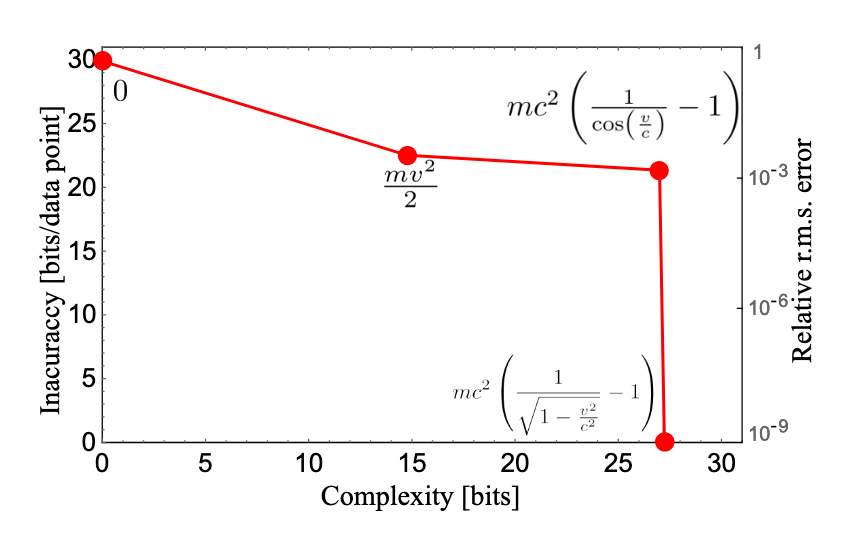
50/ Now, which model for the kinetic energy represents reality?
The correct answer: all of them.
The correct answer: all of them.
51/ And that is the frustrating part to me.
It means we should give up hope for a nice, clean, unambiguous and simple understanding of reality.
All we can hope for is a diverse mix of models that capture partial truths about the world.
It means we should give up hope for a nice, clean, unambiguous and simple understanding of reality.
All we can hope for is a diverse mix of models that capture partial truths about the world.
52/ Even though it's possible that we will discover a profoundly simple and intuitive explanation for the entirety of reality, the much more likely scenario is that reality will be forever beyond human understanding.
53/ (I emphasize "understanding" because, thanks to AI, it's likely we'll get increasingly better at predicting reality but those models will be so complex that we won't be able to claim to understand what's really happening).
54/ So, if science doesn't reveal reality, what does science actually do?
I see the endeavor of science to comprise of three activities.
I see the endeavor of science to comprise of three activities.
55/
a) Creating models of regularities in some part of reality (e.g. Hubble's law)
b) Mapping what data/entities exist in reality (e.g. mapping human genome)
c) Using models of reality to explore what's possible in reality that doesn't exist naturally (e.g. GM crops)
a) Creating models of regularities in some part of reality (e.g. Hubble's law)
b) Mapping what data/entities exist in reality (e.g. mapping human genome)
c) Using models of reality to explore what's possible in reality that doesn't exist naturally (e.g. GM crops)
56/ Scientific contribution essentially boils down to one of the following:
• Can you explore new tradeoffs of complexity-accuracy for a subset of reality?
• Can you collect new data/phenomena (that can help calculate the accuracy of the models of reality)?
• Can you explore new tradeoffs of complexity-accuracy for a subset of reality?
• Can you collect new data/phenomena (that can help calculate the accuracy of the models of reality)?
57/
• Can you design new instruments to enable the collection of data from a previously inaccessible part of reality? (Unless we have data on a part of reality, we can never make any progress for that part)
• Can you design new instruments to enable the collection of data from a previously inaccessible part of reality? (Unless we have data on a part of reality, we can never make any progress for that part)
58/
• Finally, can you create a new thing that doesn't exist naturally but is permitted by our models of reality? (Some call it technology, engineering or design but I prefer to include it in science)
• Finally, can you create a new thing that doesn't exist naturally but is permitted by our models of reality? (Some call it technology, engineering or design but I prefer to include it in science)
59/ To summarize, what I've ended up concluding is that we have to make peace with the fact that science may never reveal a beautiful and unified view of reality.
We may never get a sense of grasping the entirety of reality.
We may never get a sense of grasping the entirety of reality.
60/ We will always have multiple models and explanations for the same phenomena and telling which one is reality is something that science can't help us with.
61/ It can just help us with making predictions and if we're down to making predictions, we should probably start measuring the value of any particular scientific pursuit by its usefulness to humanity.
Just like building bridges or drafting legal contracts.
Just like building bridges or drafting legal contracts.
62/ The tricky part, of course, is that many apparently useless scientific projects (like general relativity) ended up giving unparalleled benefits to humanity (e.g. GPS wouldn't work without an understanding of how gravity changes time).
63/ The holy grail should be to prioritize scientific projects that promise both:
a) a better accuracy-complexity tradeoff for a part of reality;
b) practical applications for humanity.
a) a better accuracy-complexity tradeoff for a part of reality;
b) practical applications for humanity.
64/ That's it! Hope you enjoyed the essay.
I post new essays on my blog: invertedpassion.com
Make sure you subscribe to email updates if you don't want to miss new ones.
I post new essays on my blog: invertedpassion.com
Make sure you subscribe to email updates if you don't want to miss new ones.
• • •
Missing some Tweet in this thread? You can try to
force a refresh


